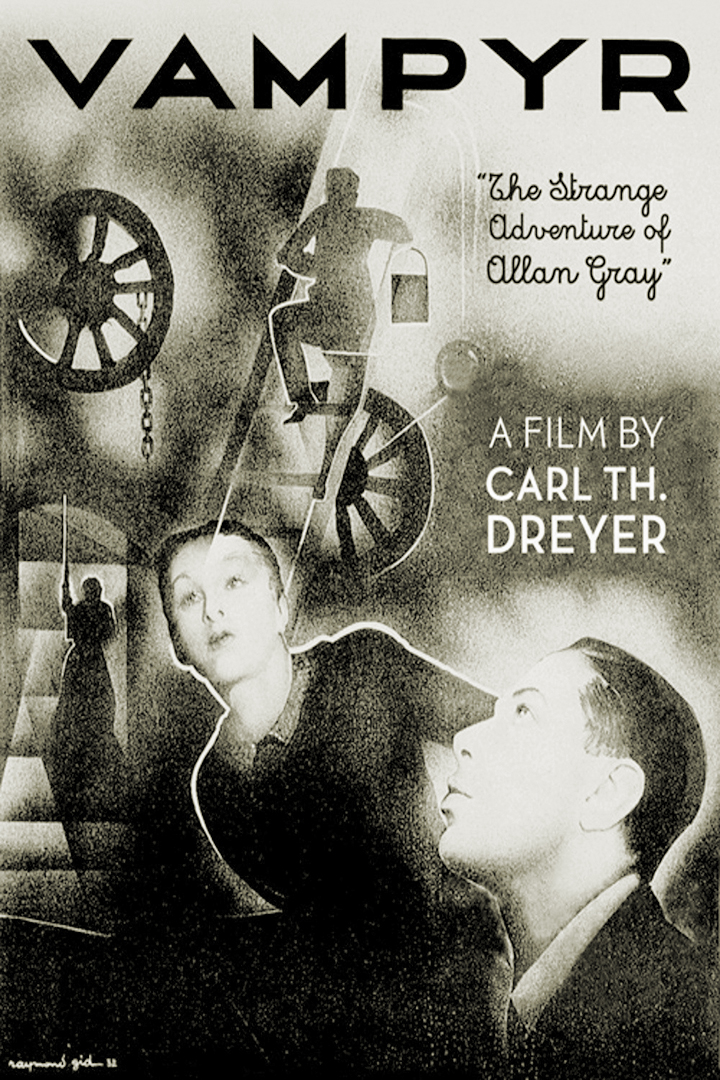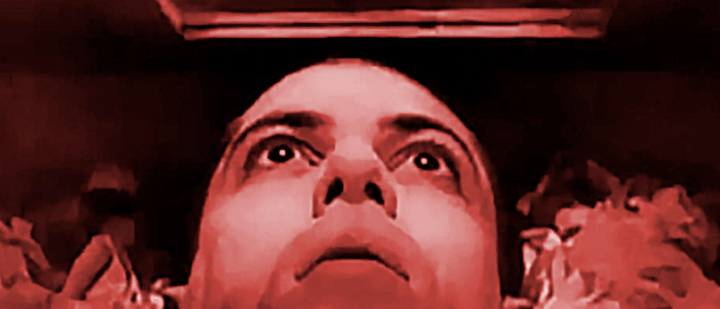
Dreyer’s shadowy world
Yes, Carl Theodor Dreyer‘s “Vampyr” deserves respect as a pioneer in the vampire movie genre. But modern audiences are going to have a real problem with its somnambulant pace and, frankly, its dearth of story.
Synopsizing “Vampyr” — a German production by a Danish director filmed in France — is a thankless task. So much of Dreyer’s dreamlike film is, by design, vague and unexplained. Dreyer and his cinematographer, Rudolph Maté, play with light and shadow … weird-looking people pop in and out … there’s much symbolism (such as the bell-ringing fisherman with a scythe who is instantly recognizable as a harbinger of death) … we cannot even be certain that what we hear and see is “real” (such as the musicians and dancing couples seen only in shadow) … Wolfgang Zeller‘s mournful score and Maté’s off-putting camera movement conspire to add layers of dread … the protagonist’s constant state of mystification is also ours …
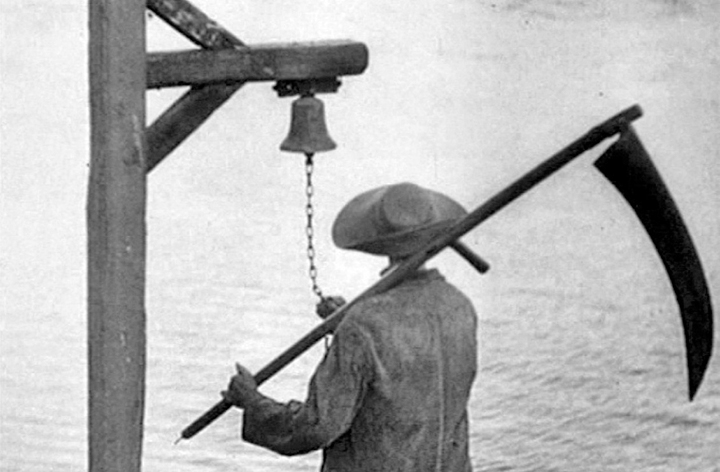
But here is, at least, an attempt at a synopsis: Young Allan Gray (Julian West) checks into an apparently unpopular inn at Courtempierre, on either a fishing or butterfly-collecting outing. (Well, he’s carrying a net over his shoulder.) Following a series of strange occurrences better seen than described, Gray winds up at a nearby estate where Léone (Sybille Schmitz), one of two sisters in the house, suffers from a troubling, undiagnosed malady. Woozy from donating blood to Léone at the insistence of an attending doctor (Jan Hieronimko), Gray dreams of his own death. In the dream, Gray sees an old woman (Henriette Gerard) through a small window in his casket lid. Could this be the legendary Marguerite Chopin, who is cited in a book on the supernatural as having visited an epidemic of vampirism upon this same village many years ago?
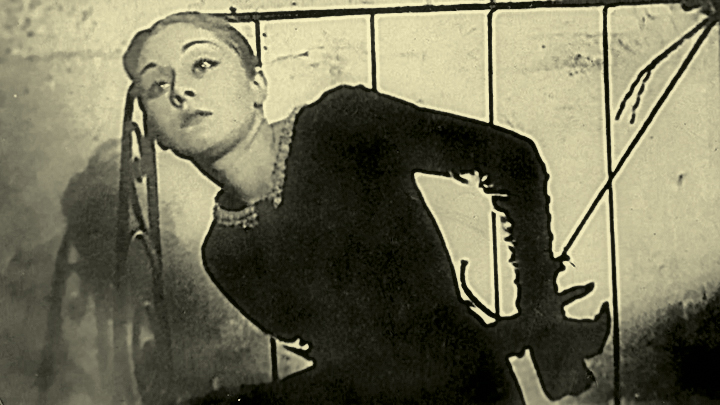
The movie is gloomy-scary, not scary-scary, although there is a scary-scary moment. It comes when Léone appears to rally for a moment, turning her head slowly while peering malevolently at her sister Gisèle (Rena Mandel) and, it dawns on us in horror, lusting for her blood.
It’s creepozoid.
The dialogue in “Vampyr” is so sparse, it feels like a silent movie. (It was filmed in French, German and English. The print in general circulation is an intuitive mashup of the French and German versions. The English version is presumed lost or never finished.) In terms of its mood, “Vampyr” has more in common with F.W. Murnau‘s “Nosferatu” (1922) or Luis Buñuel‘s “Un Chien Andalou” (1929) than Tod Browning‘s “Dracula” (1931). This, of course, only adds to “Vampyr’s” uneasy aura.
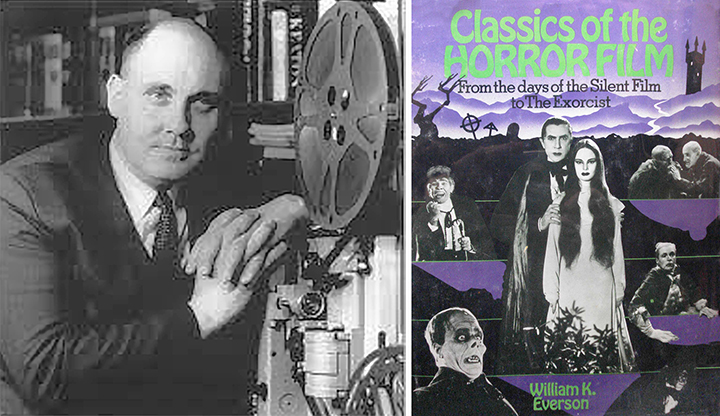
As a high school kid, I couldn’t wait to see “Vampyr” some day. I trace this yearning to an essay in William K. Everson‘s book “Classics of the Horror Film” (1974, The Citadel Press). Wrote Everson: “If one is to judge the effectiveness of the horror film solely by the degree to which it convinces the audience — and thereby frightens it — then ‘Vampyr’ must surely be the greatest horror film of all. Certainly, it is the one undisputed masterpiece of the genre.”
Everson — a real-deal film historian and critic who died in 1996 — sounds a bit high-minded here. But such was the nature of critical writing during the movie-book renaissance of the 1970s. (I cut my movie-buff teeth on these books, and my library is still packed with ’em, Google be damned.)
The “adult me” is not disappointed in “Vampyr.” Dreyer’s film is strange, moody, visually arresting, and most importanty, re-watchable. Watching “Vampyr” feels like witnessing horror-movie history. But I don’t agree that it’s the “greatest horror film of all.” Publicly, I give it to Roman Polanski‘s “Rosemary’s Baby.” Privately, it’s Charles Barton‘s “Abbott and Costello Meet Frankenstein.”
‘VAMPYR’
Starring Julian West as Allan Gray; Maurice Schutz as Der Schlossherr; Rena Mandel as Gisèle; Sybille Schmitz as Léone; Jan Hieronimko as the doctor; and Henriette Gérard as Marguerite Chopin
Written by Christen Jul and Carl Theodor Dreyer from Sheridan Le Fanu‘s short story collection “In a Glass Darkly”
Cinematography by Rudolph Maté
Produced by Dreyer and West | Directed by Dreyer
[Tobis Filmkunst]
